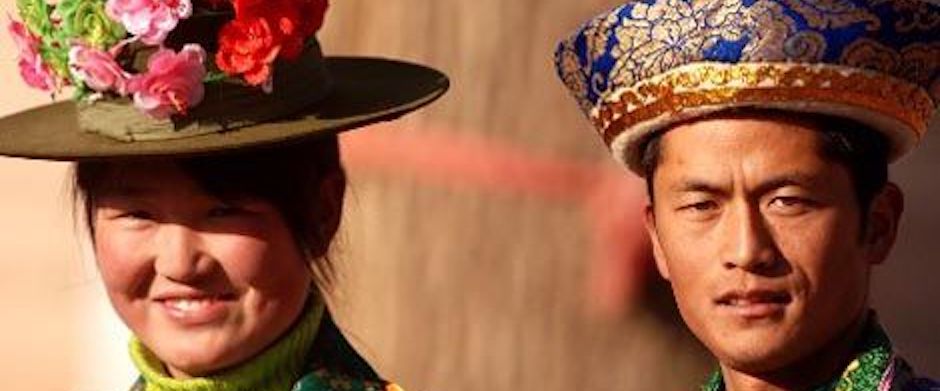Tu

The Tu people are a people group who live mostly in north-eastern Qinghai province. They have a distinct place among Chinese minority groups in that they have links to several otherwise unrelated groups. They have an ancient connection to Mongolian groups, in fact calling themselves “White Mongolians,” and their language is part of the Mongolian family of languages. However they are distinct from the broader Mongolian peoples. Culturally they share some similarity with nearby Muslim groups like the Dongxiang, but they do not follow Islam. And finally, the Tibetan people consider them to be part of their group because of shared religious heritage, but the Tu have a completely distinct origin and language from the Tibetans.
They are predominantly Buddhist, belonging to the Tibetan Buddhist branch. However, most Tu villages also house a Taoist shrine, so syncretism is common. They are known among China’s official people groups for their singing, specifically for a yearly festival of songs sung by alternating groups of men and women.
If there are any believers currently among the Tu, they will be found in Han churches from neighboring communities. No gospel materials or Bible translations exist in the Tu language. And in fact their language has no writing system at all.
